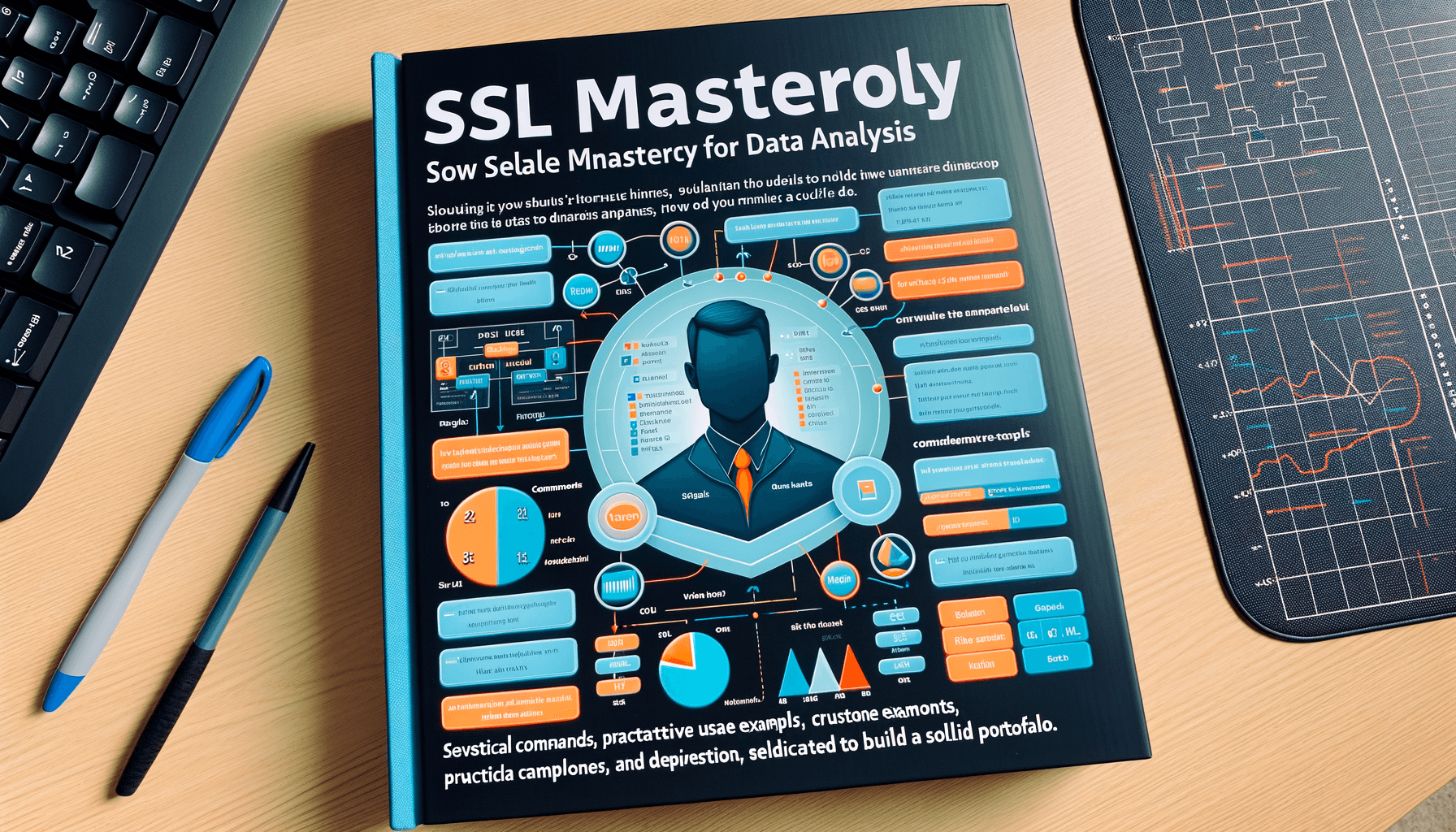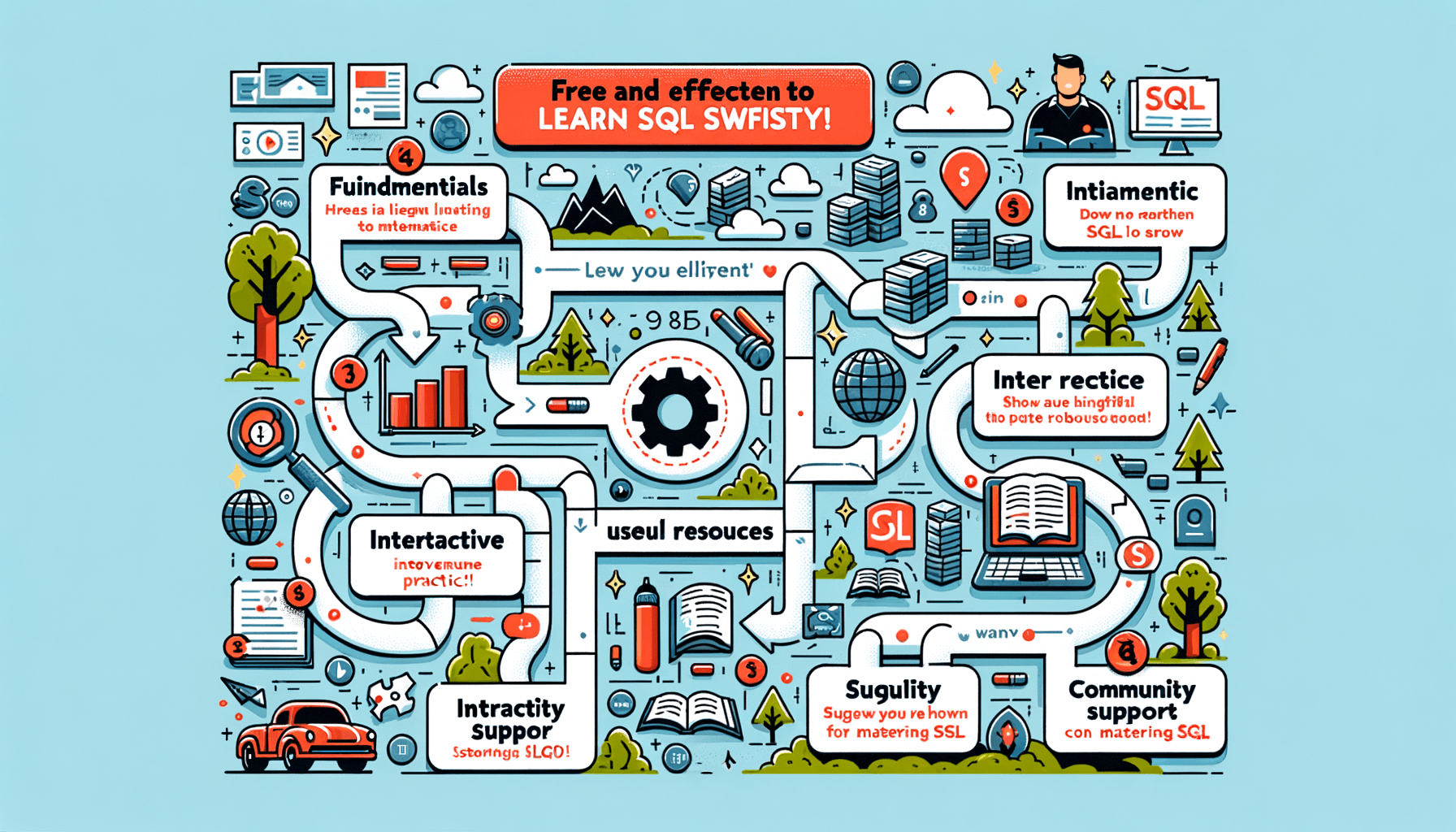A big variety of articles and resources

Master SQL: Learn SQL with Projects for Real-World Experience
 Sia Author and Instructor
Learn SQL
Sia Author and Instructor
Learn SQL
9 minute read
Getting Started with SQL Projects
Choosing Your First SQL Project
Selecting your first SQL project can be a pivotal step in your learning journey. Start with projects that align with your interests or professional needs, such as House Property Sales Analysis or an Online Retail Application Database. These projects should offer a balance of challenge and achievable goals to keep you engaged and learning.
Setting Up Your SQL Environment
Setting up the right SQL environment is crucial for effective learning and project execution. Ensure you have the necessary software installed, such as MySQL or PostgreSQL, and familiarize yourself with the interface and basic functionalities.
Understanding Basic SQL Commands
Grasping the basic SQL commands is essential for any project. Commands like SELECT, INSERT, UPDATE, and DELETE form the backbone of SQL querying. Practice these commands using simple datasets to build your confidence and prepare for more complex projects.
Designing Your First Database
Creating Tables and Relationships
When designing your first database, the initial step is to create tables that will store your data. Each table should have a clear purpose and contain related data. For example, a products table might include columns for product_id, product_name, and price. Relationships between tables are crucial for organizing data efficiently. Using foreign keys, you can link tables together to form a relational database structure.
Example SQL for creating a products table:
CREATE TABLE products ( product_id INT PRIMARY KEY, product_name VARCHAR(50), price DECIMAL(10, 2) );
Implementing Data Integrity
Data integrity ensures that the data in your database is accurate and consistent. This can be achieved through constraints like PRIMARY KEY, FOREIGN KEY, and UNIQUE. These constraints prevent duplicate records and maintain the relationships between tables. It's essential to define these constraints when creating your tables to avoid data anomalies.
Handling Basic Queries
Once your tables are set up, you'll need to handle basic queries to interact with your data. Queries such as SELECT, INSERT, UPDATE, and DELETE are fundamental for database management. Start with simple queries to retrieve or modify data and gradually move to more complex scenarios. Practicing these queries will help you understand how your database responds to different operations.
Tip: Always test your queries on a small scale before applying them to your entire database to ensure they perform as expected.
Intermediate SQL Projects
As you progress in your SQL learning journey, tackling intermediate projects can significantly enhance your understanding and skills. These projects often involve multi-table queries, advanced data manipulation, and optimizing SQL queries to handle more complex data scenarios efficiently.
Multi-table Queries
Multi-table queries allow you to extract and correlate data from various tables within a database. This is crucial for generating comprehensive reports or conducting in-depth analysis. Mastering this skill will enable you to view the data from many angles, providing a richer insight into the underlying patterns.
Advanced Data Manipulation
Advanced data manipulation involves more than just basic CRUD (Create, Read, Update, Delete) operations. You'll explore sophisticated functions and techniques that can transform the way you handle data, making your applications more dynamic and responsive.
Optimizing SQL Queries
Efficient query optimization can significantly reduce the time it takes to execute complex queries, which is essential for maintaining the performance of your database systems. Techniques such as indexing, query rewriting, or using more efficient SQL functions are part of this learning curve.
Real-World SQL Applications
E-commerce Database Management
In the realm of e-commerce, managing a database effectively is crucial for tracking inventory, customer orders, and product details. Implementing SQL projects in this area can significantly enhance operational efficiency and provide real-time insights into business performance. Beginners can start with simple tasks like updating product information and progress to more complex data analysis.
Student Information Systems
SQL is instrumental in managing student databases, from enrollment to graduation. By engaging in projects that simulate real-world problems, learners gain practical experience in handling data related to student performance, course management, and more. This hands-on approach is ideal for beginners and helps in building a robust understanding of SQL.
Inventory Control Systems
Effective inventory management is essential for any business to maintain optimal stock levels and meet customer demands. SQL projects in this domain allow learners to tackle real-world challenges such as monitoring stock levels and managing supplier relationships. These projects not only reinforce SQL skills but also provide exposure to different database management systems.
Note: Engaging in SQL projects helps in applying theoretical knowledge to practical scenarios, enhancing both skills and understanding.
Advanced SQL Project Ideas
Data Analysis for Business Insights
In today's data-driven world, leveraging SQL for business insights is crucial. This project involves analyzing large datasets to uncover trends and patterns that can inform strategic decisions. You might consider creating dashboards or automated reports to visualize the data effectively.
Complex Report Generation
Generating complex reports requires a deep understanding of SQL queries and data structure. This project could involve creating detailed financial reports, customer behavior analyses, or operational efficiency reviews. The use of subqueries and complex joins can significantly enhance the depth of your reports.
Automating Data Processes
Automation is key in optimizing business processes. This project focuses on using SQL to automate data entry, updates, and reporting. By setting up scheduled tasks and triggers, you can ensure that data handling is both efficient and error-free. This approach not only saves time but also reduces the likelihood of human error.
Project-Based Learning in SQL
Simulating Real-World Problems
Project-based learning in SQL is crucial as it allows learners to tackle real-world problems using a structured approach. This method not only enhances problem-solving skills but also solidifies the learner's ability to apply SQL knowledge practically. Projects can range from simple database setups to complex data manipulation tasks, providing a comprehensive learning experience.
Feedback and Iteration
Incorporating feedback and iterating over SQL projects is essential for mastering SQL. This process helps in refining the database designs and queries, ensuring they meet the required standards and functionality. Learners should regularly seek feedback from peers or mentors and use it to improve their projects, which is a critical step in professional development.
Integrating with Other Programming Languages
SQL often needs to be integrated with other programming languages to create more dynamic and functional applications. Understanding how to connect SQL databases with languages like Python, Java, or JavaScript can open up a vast array of possibilities for creating more interactive and user-friendly applications. This skill is particularly valuable in developing applications that require complex user interactions and real-time data processing.
Showcasing Your SQL Projects
Building a Portfolio
Building a strong portfolio is essential for demonstrating your SQL skills and project experience. Include projects that highlight your proficiency in SQL, such as database design, data analysis, and query optimization. Use platforms like GitHub to host your projects and ensure each project is well-documented with clear README files.
Presenting Projects to Potential Employers
When presenting your SQL projects to potential employers, focus on the objectives and outcomes of your projects. Discuss the datasets used, the SQL queries employed, and the insights gained. This approach showcases your ability to handle real-world problems using SQL.
Continuous Learning and Improvement
Embrace continuous learning to keep your SQL skills relevant and competitive. Engage in online courses, workshops, and community forums. Regularly update your projects to include new techniques and technologies, demonstrating your commitment to growth and learning in the field of SQL.
Conclusion
In conclusion, mastering SQL through real-world projects is an invaluable approach for both beginners and advanced learners. By engaging in practical projects, learners can apply theoretical knowledge to real datasets, enhancing their understanding and proficiency in SQL. These projects not only reinforce SQL commands and best practices but also expose learners to various database management systems, preparing them for diverse professional challenges. Whether managing inventory databases or analyzing large datasets for data science, SQL projects provide the hands-on experience necessary to build a strong foundation and advance in the field of data management. Now equipped with project ideas and insights, you are ready to embark on your journey to SQL mastery, enhancing your skills and boosting your career prospects.
Frequently Asked Questions
What are the benefits of working on SQL projects?
Working on SQL projects helps learners apply SQL concepts to real datasets, improving understanding and retention of SQL syntax and best practices. It also exposes them to different database management systems, enhancing their versatility and problem-solving skills.
How can beginners start with SQL projects?
Beginners can start with projects such as designing databases for inventory management or student information systems. These projects allow them to practice creating tables, managing data, and handling queries, building a strong foundation for more complex projects.
What types of SQL projects can help with real-world applications?
Projects like e-commerce database management, student information systems, and inventory control systems provide hands-on experience, allowing learners to apply database design principles, normalization, and transaction management in practical scenarios.
How does SQL assist in data analysis?
SQL is crucial in data analysis for extracting valuable insights from large datasets. It allows for efficient data manipulation and querying within relational database management systems, making it a vital tool in data science and business analysis.
Where can I find SQL projects for practice?
You can find SQL projects on online platforms that offer datasets for analysis, participate in data science competitions, or use open-source datasets. Creating your own projects using publicly available data is also a viable option.
What advanced SQL techniques should I learn for complex projects?
For advanced SQL projects, you should be comfortable with multi-table queries, advanced data manipulation techniques, and optimizing SQL queries. These skills will help you handle more complex data scenarios and stand out in your field.
Related Articles

10 Effective Tips on How to Learn SQL Online
9 minute read

A Comprehensive Guide to Learn SQL for Analysts
8 minute read


